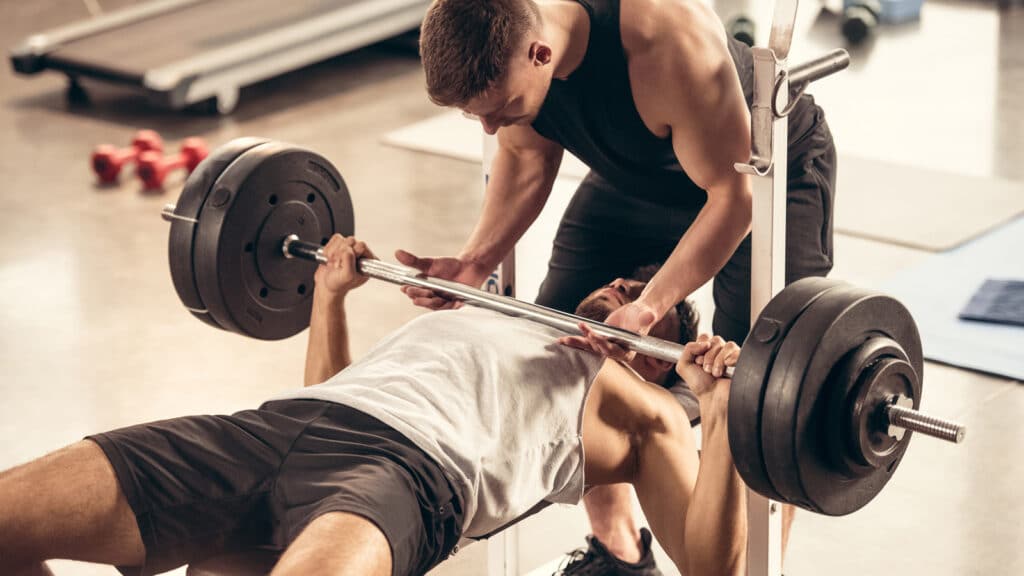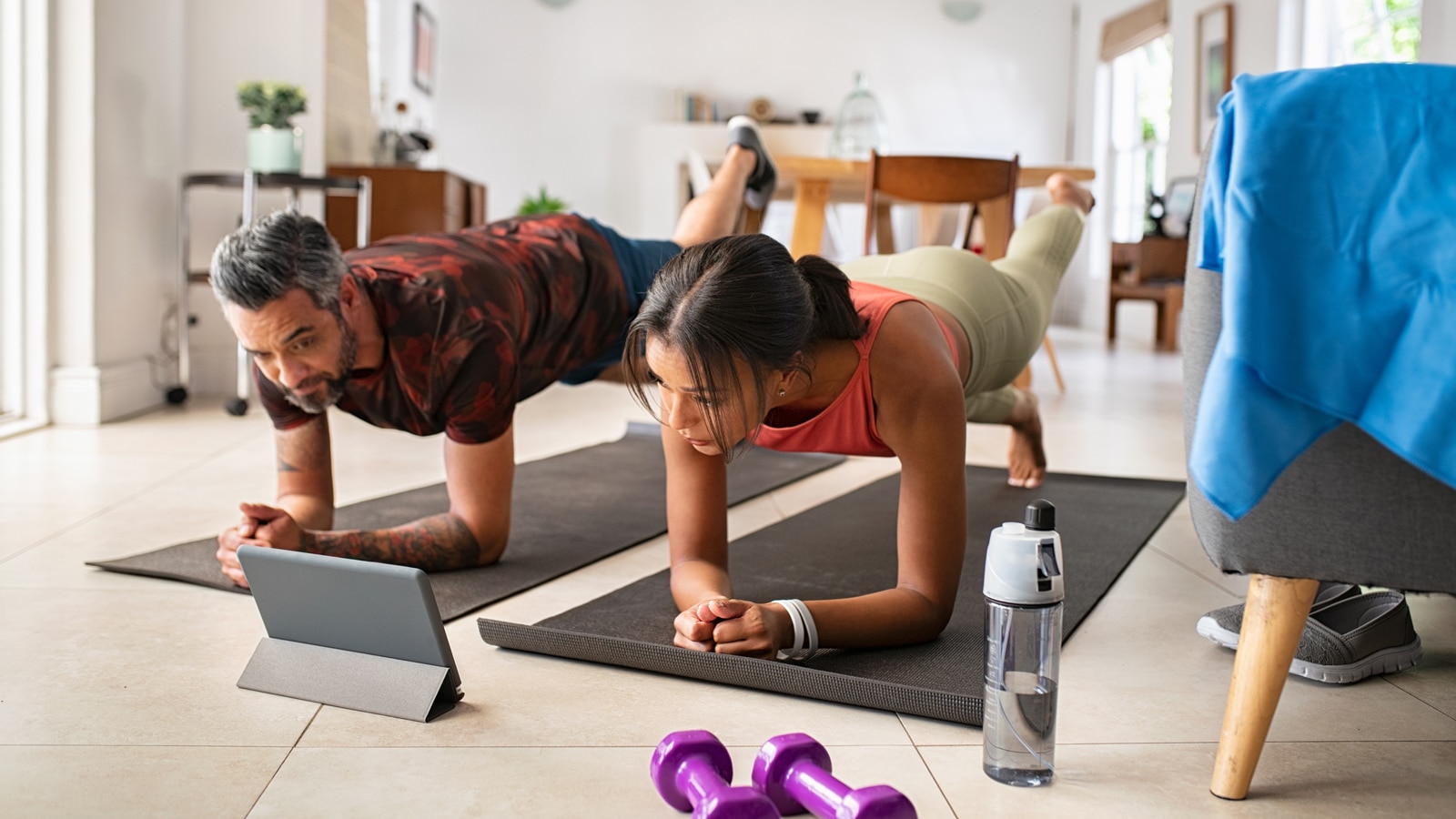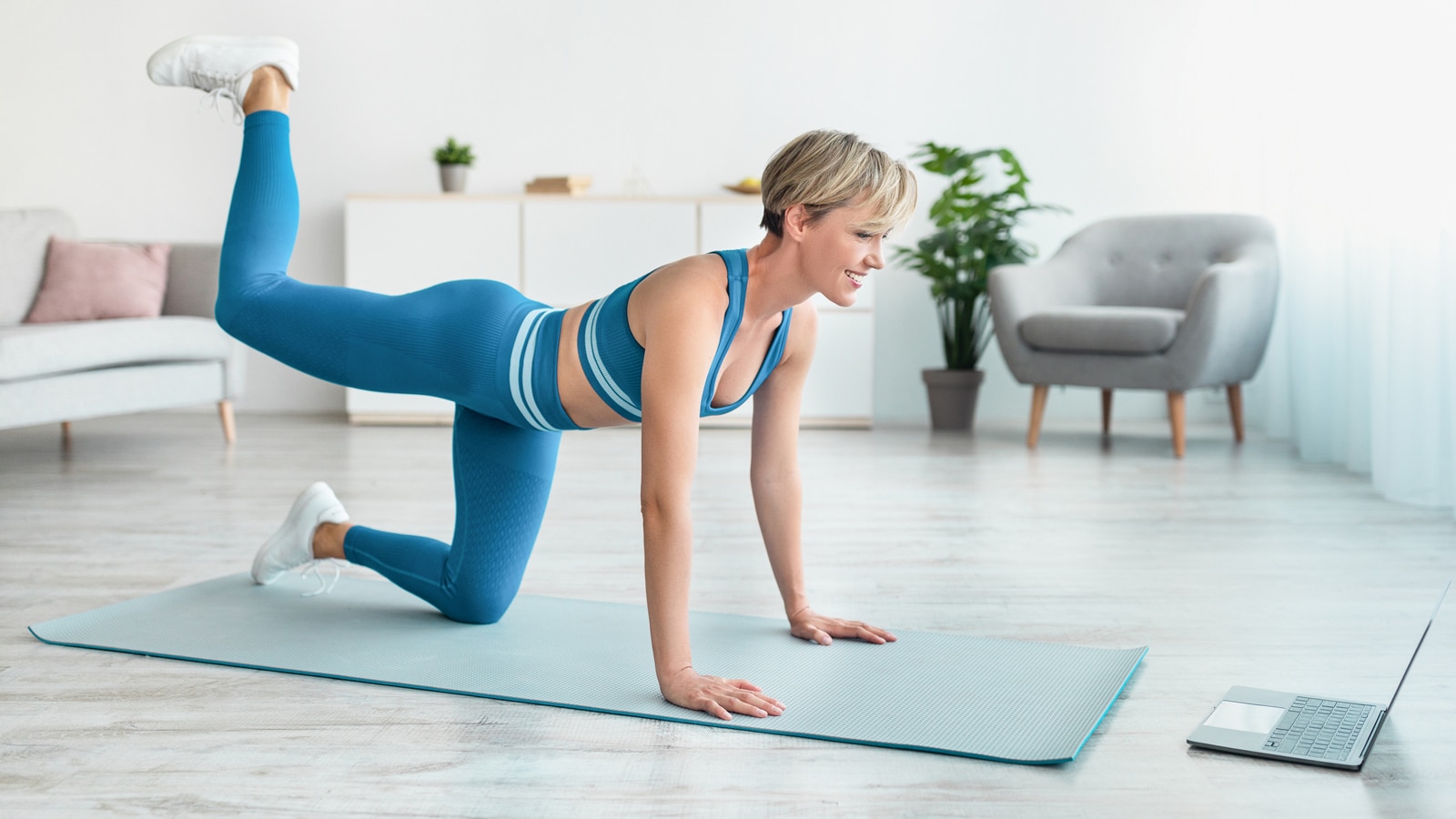How Long Should You Spend At The Gym?
The guidelines for health and fitness are at least 150 minutes of moderate-intensity activity or 75 minutes of vigorous-intensity activity a week. Spread this exercise evenly over 4 to 5 days a week, or do a little every day.
But this is a minimum. It’s a lot better than nothing, but is it really enough to hit your fitness goals? How much time at the gym is enough?

It Depends On Your Goals And Fitness Level
The amount of time you should spend at the gym comes down to two factors:
Goals + Fitness Level
If you’re starting from a low fitness level, spending too much time at the gym will lead to overtraining and injuries. Training for hours will take too much time out of your day, leaving you tired and demoralized. Long workouts are not always better. One hour in the gym is more than enough for most people. For novices, half an hour can be plenty – it’s the quality of your workout that counts. It’s better to be realistic and commit to regular short workouts than spend hours in the gym at the start of January and never go back for the rest of the year.
Use A Personal Trainer
If you’re a novice, get the gym staff to show you how to use the equipment correctly. Correct form is essential – especially if you’re using heavier weights. It’s key to getting the most out of your workout program and avoiding injury. A personal trainer to help you set specific goals and get better results from your workout routine.
Setting Goals
Goals can be completely different from one person to the next. Some people use the gym to lose weight, others for strength training sessions, and some are there for weight training. These are very different targets. Strength training sessions for a runner will look very different to someone aiming to bench press 200lb.

Gym Sessions For Weight Loss
This is all about calorie deficit – burning more calories than you consume. One of the best ways to burn calories is high-intensity interval training (HIIT).
There may be group fitness classes at your gym with HIIT sessions or you can complete your own interval sessions using the cardio machines – treadmills, rowing machine, elliptical, stair climber, or indoor cycling. These are all terrific for burning calories.
For best results, combine your cardio exercise regime with strength training. Muscles burn more energy than fat cells, so having a more muscular frame can help you lose weight. When you build muscle you’re building a stronger body that’s more resilient to injury – it will help you reach your fitness goals and maintain your fitness levels.
A typical training session in the gym where the goal is losing weight would be a 45 to 60-minute workout routine combining higher intensity cardio with strength training. Warm-up properly before you start your session. Ideally, for fast results, aim to work out three to five times a week. You may need to build up to this level starting off with shorter sessions. It’s always important to avoid overtraining.
Time spent in the gym needs to be consistent. If 30 minutes of exercise twice a week is all you can manage, don’t beat yourself up about it. Just make sure you commit to those two sessions. You can always extend your exercise regimen outside of the gym by walking, running for weight loss, or doing home exercises.
Related post: Stairmaster vs. Treadmill: Which is better for weight loss?

Gym Sessions For Strength Training
The amount of time you spend at the gym for strength work will depend on your workout purpose. If you’re building strength to supplement your running or other sports, a 15 to 30-minute session targeting muscle weaknesses and imbalances may be sufficient.
Runners benefit from strength training 2 -3 times a week with at least one rest day between sessions – for example, 15 minutes on Monday, Wednesday, and Friday – combining the strength work with a cross-training session on the cardio machines. Some of the best strength training exercises for runners use just body weight such as lunges, split squats, glute bridges, and planks.

Gym Sessions For Building Muscles
Workouts for building muscle will take longer – around 60 to 75 minutes. That’s to allow for rest time between sets. You’re working your muscles hard and they need to recover.
Aim for two to four sessions per week. It will depend on how you split up working your main muscle groups. Some people like to work the whole body in one session, while others focus on the upper body one day, legs and core the next.
When you’re lifting weights, rest days are really important – don’t try doing two upper-body sessions back to back. Your muscles will be far too sore!
Can I Spend Too Much Time At The Gym?
Yes, you can. There’s nothing worse than getting carried away in the gym and waking up the next day with extremely sore muscles! Overdo the duration or intensity of your workouts and you can end up sore, tired and disillusioned.
You want your gym time to be a positive experience. Getting carried away on your first few visits will have a negative impact on your training program. All your hard work will come to nothing if get injured or just feel too tired to keep up with your fitness program. It’s better to commit to less time for each session than avoid exercising.
Exercising For Better Health
The general guidelines of at least 150 minutes of moderate exercise or 75 minutes of vigorous exercise a week are really an absolute minimum. It’s a level recommended for disease control – such as good cardio health, avoiding strokes, type 2 diabetes, and many types of cancer.
If you want to be fit and healthy your body deserves to be treated better. Our bodies are designed to move – not to sit all day at a desk, travel home in a car, and spend the evening on the couch.
Go to the gym, take the dog for a walk or try running. Any time spent moving is better than nothing – but the more time you invest in your body, the better the results.
Spend enough time at the gym, mix up the type of workout and see your level of fitness improve. Commit to your gym days to hit your fitness and weight loss goals.






